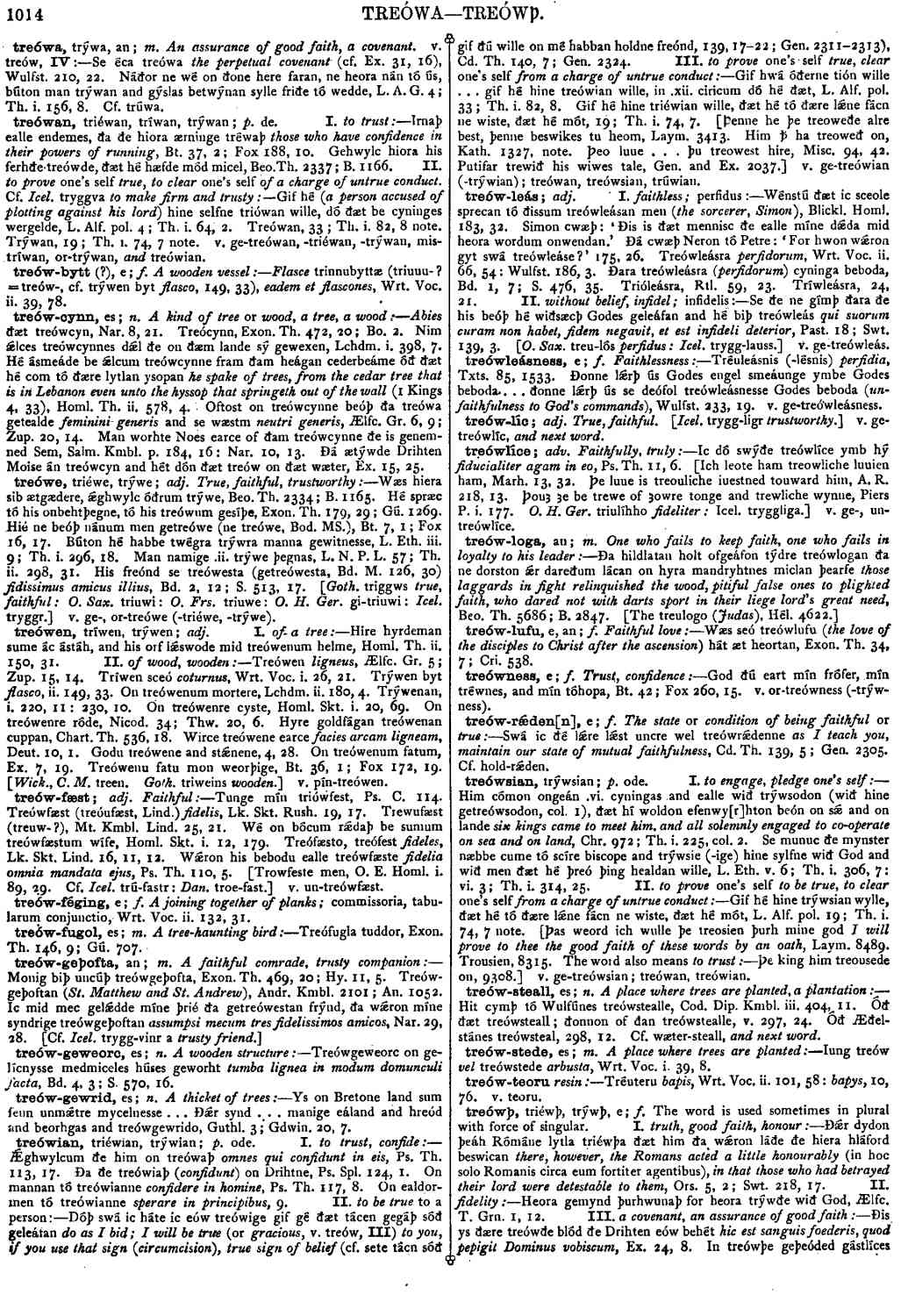treówþ
- noun [ feminine ]
-
Ðǽr dydon þeáh Rómáne lytla triéwþa ðæt him ða wǽron láðe ðe hiera hláford beswican there, however, the Romans acted a little honourably (in hoc solo Romanis circa eum fortiter agentibus),
in that those who had betrayed their lord were detestable to them,
- Ors. 5, 2; Swt. 218, 17.
-
Heora gemynd þurhwunaþ for heora trýwðe wið God,
- Ælfc. T. Grn. 1, 12.
-
Ðis ys ðære treówðe blód ðe Drihten eów behét
hic est sanguisfoederis, quod pepigit Dominus vobiscum,
- Ex. 24, 8.
-
In treówþe geþeóded gástlícesfreóndscipes
spiritalis amicitiae foedere copulatus.
- Bd. 4, 29; S. 607, 9.
-
Mid ǽnigere treówðe
quolibet pacto,
- Hpt. Gl. 469, 34.
-
Treówða
foedera, pacta,
- 404, 9.
-
Treófða
foedera,
- 416, 47.
-
Hié nánra treówþa him ne wéndonbúton ðæt hié mid ealle forweorþan sceolde
they expected no terms for themselves, but that they must entirely perish ;
the Latin which this seems intended to translate is :-- Non secus ac si capta esset, turbata civitas fuit.- Ors. 4, 5; Swt.
166, 13.
-
Ic gemunde mínra treówða ðe ic Abrahame behét
recordatus sum pacti mei,
- Ex. 6, 5.
-
Gif gé míne treówða gehealdaþ
si eustodieritis pactum meum,
- 19, 5.
Bosworth, Joseph. “treówþ.” In An Anglo-Saxon Dictionary Online, edited by Thomas Northcote Toller, Christ Sean, and Ondřej Tichy. Prague: Faculty of Arts, Charles University, 2014. https://bosworthtoller.com/31025.
Checked: 0